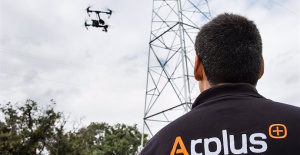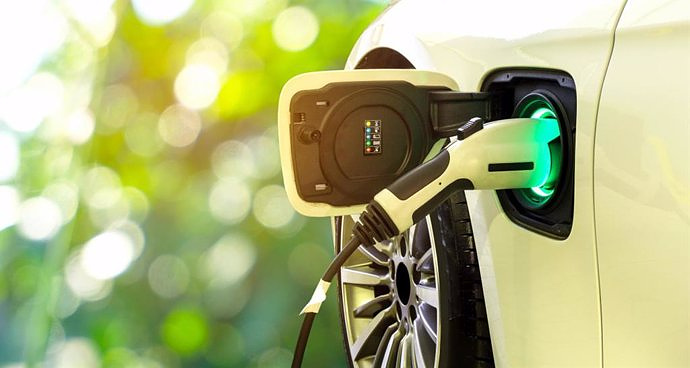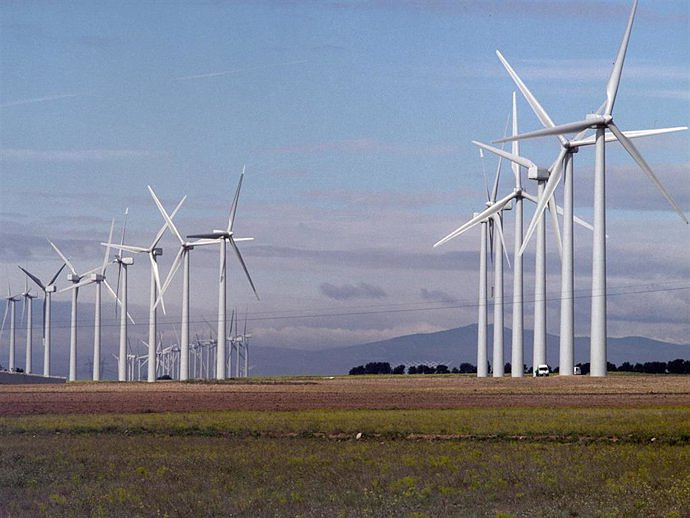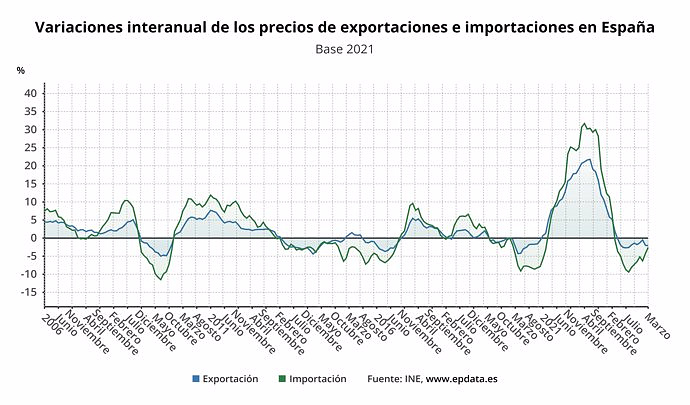You can also deduct up to 15% (with a limit of 4,000 euros) for the installation of a charging point at home.
MADRID, 31 Mar. (EUROPA PRESS) -
Buyers of a battery electric vehicle (BEV), an extended range electric vehicle (EREV), a fuel cell electric vehicle (FCEV) or a plug-in hybrid (PHEV), between July and December 2023 can benefit from the new tax deduction. 15% of the value of the car in the personal income tax (IRPF) in the 2023 income campaign that begins this April 3 and will end on July 1.
This measure, published in the Official State Gazette (BOE) in June 2023, allows 15% of the value of the vehicle to be recovered with a limit of 3,000 euros, since the base of the deduction may not exceed 20,000 euros, and will be constituted by the acquisition value of the vehicle, including acquisition expenses and taxes, and must deduct those amounts that, where appropriate, would have been subsidized through a public aid program.
The vehicles that can benefit from this tax measure are those that belong to the category of Passenger Cars M1, Heavy Quadricycles L7e, Light Quadricycles L6e and Motorcycles L3e, L4e and L5e. These vehicles must be powered exclusively by electricity and be approved as electric vehicles.
Thus, according to data published by the Business Association for the Development and Promotion of Electric Mobility (Aedive) and the National Association of Sellers of Motor Vehicles, Repair and Spare Parts (Ganvam) on electrified vehicles registered in 2023, the estimated number of vehicles that can benefit from this tax measure is 64,400 in Spain.
However, Aedive has detailed to Europa Press that the deduction is only valid when the electric vehicle purchased is intended for a particular use and, therefore, those that are modified or used for other activities such as transporting goods or rent.
In this sense, the association adds that of the total electrified vehicles registered in 2023, 42% were through the individual channel, 50% in companies and 8% for rent.
Likewise, a deduction of 15% of the value of the vehicle can be applied to personal income tax when at least 25% of the purchase value is paid as an advance to purchase the electrified vehicle in the future, as long as the payment is completed and the vehicle is purchased. car before the end of the second tax period following the initial payment.
Likewise, it will be possible to deduct up to 15% (in this case with a limit of 4,000 euros) for the installation of a charging point at home.
On the other hand, the aid granted by the Government for the purchase of new vehicles under the Moves III Plan must be declared to the Treasury as capital gain and, therefore, are subject to tax, as explained in a statement by the Coches.net portal. These amounts entered will increase the tax base, which will be taxed based on the tax brackets.
In this sense, last December the Government clarified that the 15% deduction in personal income tax can be applied to the purchase of electric vehicles purchased in installments as long as they are for private use, more than 25% of the price is paid before the end. 2024 and the car is paid off before 2026, while it can be combined with the aid from the Moves III Plan, extended until July 2024.
This was detailed at the time by the Institute for Energy Diversification and Saving (IDAE), in a guide to which Europa Press has had access, which includes the main doubts in this regard and details that consumers who buy an electric vehicle or that build a charging infrastructure for private use before 2025 will be able to simultaneously benefit from a 15% deduction in personal income tax and Moves III aid.
In this sense, to benefit from the tax incentive approved at the end of June, the taxpayer will have to submit their tax return with the corresponding amount, while the aid received for both vehicles and charging stations will be considered "capital gains."

 Exploring Cardano: Inner Workings and Advantages of this Cryptocurrency
Exploring Cardano: Inner Workings and Advantages of this Cryptocurrency Seville.- Economy.- Innova.- STSA inaugurates its new painting and sealing hangar in San Pablo, for 18 million
Seville.- Economy.- Innova.- STSA inaugurates its new painting and sealing hangar in San Pablo, for 18 million Innova.- More than 300 volunteers join the Andalucía Compromiso Digital network in one month to facilitate access to ICT
Innova.- More than 300 volunteers join the Andalucía Compromiso Digital network in one month to facilitate access to ICT Innova.-AMP.- Ayesa acquires 51% of Sadiel, which will create new technological engineering products and expand markets
Innova.-AMP.- Ayesa acquires 51% of Sadiel, which will create new technological engineering products and expand markets Borrell points out that several EU countries may recognize the State of Palestine in May
Borrell points out that several EU countries may recognize the State of Palestine in May The CNMV prohibits the funds that sold shares to Apollo in its takeover bid from purchasing more Applus securities
The CNMV prohibits the funds that sold shares to Apollo in its takeover bid from purchasing more Applus securities STATEMENT: SUNRATE partners with YeePay to empower Chinese companies to navigate global expansion
STATEMENT: SUNRATE partners with YeePay to empower Chinese companies to navigate global expansion Nadal is still alive and exciting in Madrid
Nadal is still alive and exciting in Madrid How Blockchain in being used to shape the future
How Blockchain in being used to shape the future Not just BTC and ETH: Here Are Some More Interesting Coins Worth Focusing on
Not just BTC and ETH: Here Are Some More Interesting Coins Worth Focusing on They create a bank of machinery sounds to prevent breakdowns through artificial intelligence
They create a bank of machinery sounds to prevent breakdowns through artificial intelligence UPV students build a prototype of a wooden house to move to Equatorial Guinea
UPV students build a prototype of a wooden house to move to Equatorial Guinea The UA opens the call for the Impulso 2024 Awards for the best innovative business initiatives
The UA opens the call for the Impulso 2024 Awards for the best innovative business initiatives ALI, virtual assistant from Alicante, internationally recognized by the OECD
ALI, virtual assistant from Alicante, internationally recognized by the OECD A million people demonstrate in France against Macron's pension reform
A million people demonstrate in France against Macron's pension reform Russia launches several missiles against "critical infrastructure" in the city of Zaporizhia
Russia launches several missiles against "critical infrastructure" in the city of Zaporizhia A "procession" remembers the dead of the Calabria shipwreck as bodies continue to wash up on the shore
A "procession" remembers the dead of the Calabria shipwreck as bodies continue to wash up on the shore Prison sentences handed down for three prominent Hong Kong pro-democracy activists
Prison sentences handed down for three prominent Hong Kong pro-democracy activists ETH continues to leave trading platforms, Ethereum balance on exchanges lowest in 3 years
ETH continues to leave trading platforms, Ethereum balance on exchanges lowest in 3 years Investors invest $450 million in Consensys, Ethereum incubator now valued at $7 billion
Investors invest $450 million in Consensys, Ethereum incubator now valued at $7 billion Alchemy Integrates Ethereum L2 Product Starknet to Enhance Web3 Scalability at a Price 100x Lower Than L1 Fees
Alchemy Integrates Ethereum L2 Product Starknet to Enhance Web3 Scalability at a Price 100x Lower Than L1 Fees Mining Report: Bitcoin's Electricity Consumption Declines by 25% in Q1 2022
Mining Report: Bitcoin's Electricity Consumption Declines by 25% in Q1 2022 Oil-to-Bitcoin Mining Firm Crusoe Energy Systems Raised $505 Million
Oil-to-Bitcoin Mining Firm Crusoe Energy Systems Raised $505 Million Microbt reveals the latest Bitcoin mining rigs -- Machines produce up to 126 TH/s with custom 5nm chip design
Microbt reveals the latest Bitcoin mining rigs -- Machines produce up to 126 TH/s with custom 5nm chip design Bitcoin's Mining Difficulty Hits a Lifetime High, With More Than 90% of BTC Supply Issued
Bitcoin's Mining Difficulty Hits a Lifetime High, With More Than 90% of BTC Supply Issued The Biggest Movers are Near, EOS, and RUNE during Friday's Selloff
The Biggest Movers are Near, EOS, and RUNE during Friday's Selloff Global Markets Spooked by a Hawkish Fed and Covid, Stocks and Crypto Gain After Musk Buys Twitter
Global Markets Spooked by a Hawkish Fed and Covid, Stocks and Crypto Gain After Musk Buys Twitter Bitso to offset carbon emissions from the Trading Platform's ERC20, ETH, and BTC Transactions
Bitso to offset carbon emissions from the Trading Platform's ERC20, ETH, and BTC Transactions Draftkings Announces 2022 College Hoops NFT Selection for March Madness
Draftkings Announces 2022 College Hoops NFT Selection for March Madness























